Seeking Recommendations for Northern Virginia Home Builder
3 years ago
Featured Answer
Sort by:Oldest
Comments (43)
- 3 years ago
- 3 years ago
Related Discussions
Virginia Pool Builder- Please help!
Comments (18)@elcs2 Randy can do anything! I had him build me a huge concrete bar in the pool house. He loved me for it..not really...haha....but he did a fantastic job! We've had excellent experience with Dogwood on several projects....See MoreNeed PB recommendation in Northern Virginia
Comments (4)No, I haven't run into that..yet. Last night we visited some friends who had a pool built by Maryland Pools. It's beautiful and they were happy with the pool project. They have a flagstone deck, but if they had to do it again they said they would use something else. They think it's too hot, plus they find little sharp pieces breaking off of the flagstone due to furniture movement. They initially contracted outside of MP for the decking, kitchen and other things, but ran into so many issues they ended up going back to the contractor recommended by MP. And, they showed us all their paperwork so now we have a much better idea of what 'additional' costs we may run into from both the county and pool builder. That's one of my biggest concerns.Thinking we can build this for $100K and finding that it's really $200K. Looking forward to hearing more as you interview contractors....See MoreCabinet maker in Northern Virginia
Comments (2)We are in Leesburg and are working with Kitchen Intuition in Warrenton. It's a bit of a hike, but Andrea Rexrode is the owner/designer and is fantastic! I went out to her office once and haven't had to go back again (she's so creative and works well via email if you don't want to go out their too often). I should also mention that I worked with another kitchen designer for about 6 months and was near tears. My builder recommended I contact Andrea and within 2 weeks we were done with the house. She's fantastic (and, we have the same name, so I like her even more!) ha! I'm recommending her bc she actually works with custom cabinet makers and carries a few brands. She's been able to do our entire house for a very reasonable price using a variety of them (high end kitchen with some custom items, but maybe less expensive items for mudroom, laundry, etc). She's definitely worth a call - 540-347-3871 (and, I'm glad to send you what she did for us as well)...See MoreGreat plumber (or small company) in Northern Virginia?
Comments (2)Hi, I'm in CCMD, and we just used a company that seems to work on both sides of the Beltway, Michael and Son. I called them at 4pm on a Friday after we realized our ancient gas range wasn't going to hold out till spring for a full kitchen remodel. Wash Gas had found a leak and shut off all the gas to the house since the range had been installed by previous owners without a shut off valve. M&S sent a plumber who was also a certified gas tech, no emergency charges even though he didn't leave till 730pm on a Friday nite, AND he got all the work done plus was able to turn the gas back on to our home. The charge was 300 dollars, which is less than i paid the last time I needed a drain snaked....See More- 3 years ago
- 3 years ago
- 3 years ago
- 3 years ago
- 3 years ago
- 3 years agolast modified: 3 years ago
- 3 years ago
- 3 years ago
- 3 years ago
- 3 years ago
- 3 years ago
- 3 years ago
- 3 years ago
- 3 years ago
- 3 years ago
- 3 years ago
- 3 years ago
- 3 years ago
- 3 years ago
- 3 years ago
- 3 years ago
- 3 years ago
- 3 years ago
- 3 years ago
- 3 years ago
- 3 years agolast modified: 3 years ago
- 3 years ago
- 3 years ago
- 3 years ago
- 3 years ago
- 3 years ago
- 3 years ago
Related Stories
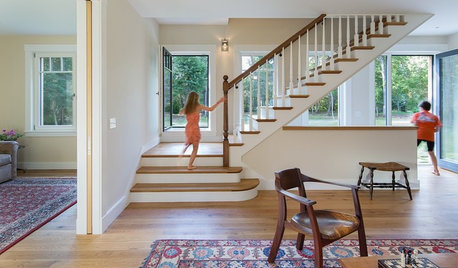
EARTH DAY10 Sustainable Features Pros Recommend for Any Home
Improve the comfort, efficiency and ecological impact of your space with ideas from design, building and landscape pros
Full Story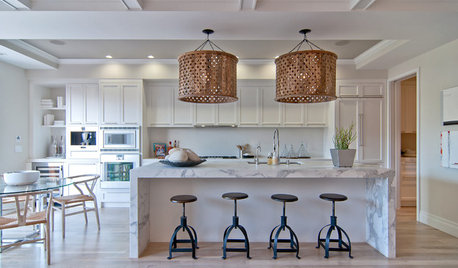
ARCHITECTURE7 Builder Upgrades to Skip in a New Home
Consider taking a pass on these options. You’ll increase your choices by doing them later
Full Story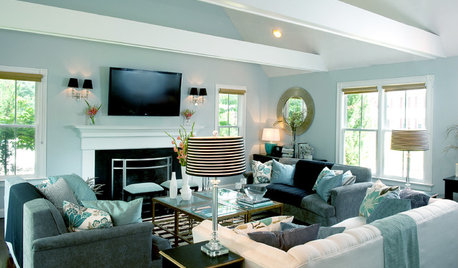
HOUZZ TOURSMy Houzz: A Basic Builder Home Gets the Glam Treatment
From blank canvas to decorated beauty, this home in Massachusetts changed a family's life in more ways than one
Full Story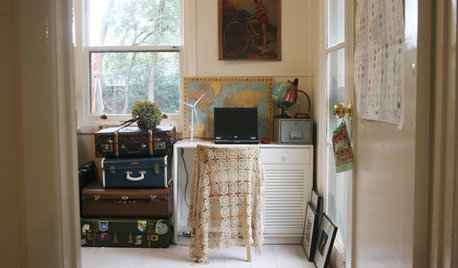
MOVINGMaking a Home Away From Home
Feeling like a stranger in a strange land? These tips can help ease the transition after a big move
Full Story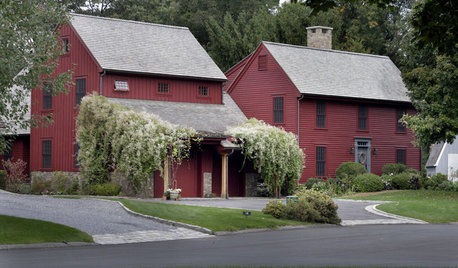
GREAT HOME PROJECTSReady to Repaint Your Home’s Exterior? Get Project Details Here
Boost curb appeal and prevent underlying damage by patching and repainting your home’s outer layer
Full Story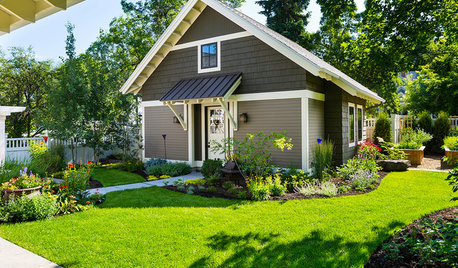
WORKING WITH PROS10 Times to Hire a Builder
These pros can help you with a custom home, a major remodel, an in-law unit or a vacation home
Full Story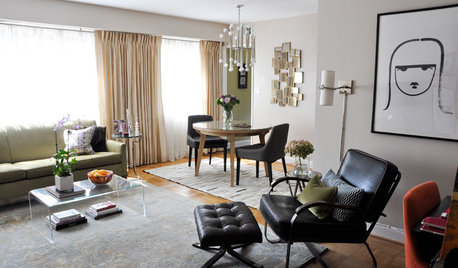
HOUZZ TOURSMy Houzz: Fashionable, Organic Style in a Compact Virginia Condo
Mirrors, clever storage solutions and elegant custom touches make a 628-square-foot home in Arlington naturally stylish
Full Story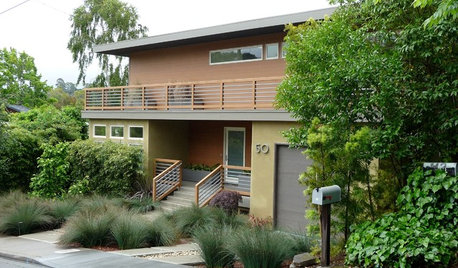
HOUZZ TOURSHouzz Tour: An Ecofriendly Family Home Gets in Line
Without any curved lines but with a wealth of energy-efficient features, this remodeled home in Northern California has plenty of appeal
Full Story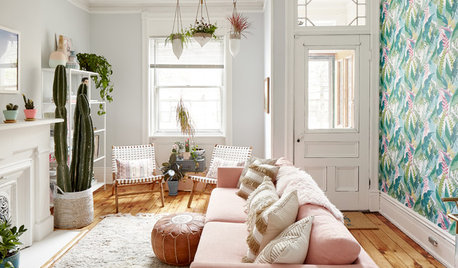
TRENDING NOW10 Design Trends Coming to a Home Near You
Designers and builders reveal the colors, materials and other features their clients are asking for
Full Story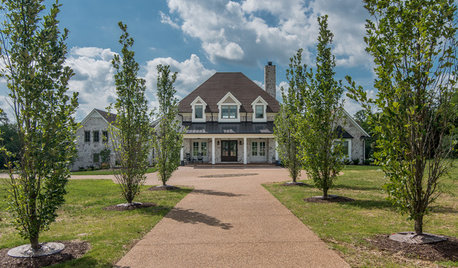
HOUZZ TVThis Light-Filled Tennessee Dream Home Was 40 Years in the Making
A retired couple used Houzz to find design professionals to help build a spacious home that can easily host 100
Full Story



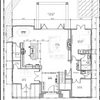
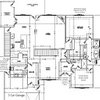
Lyndee Lee